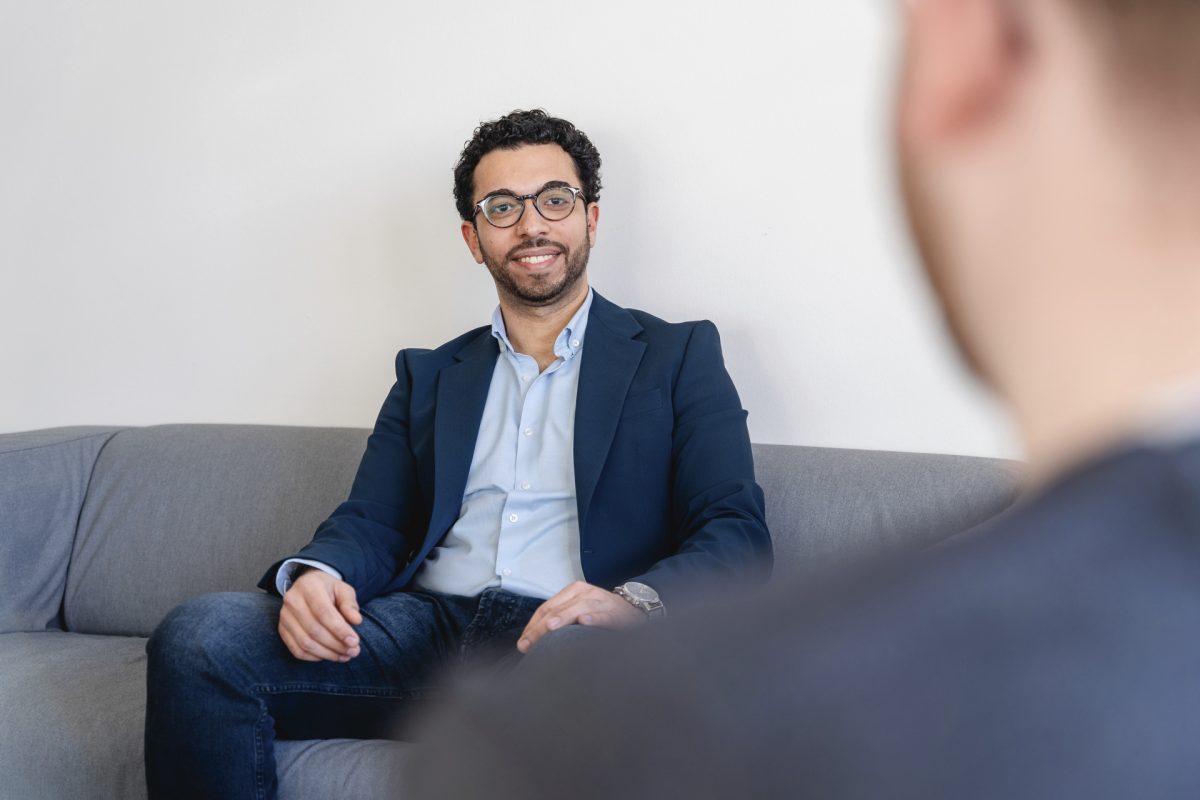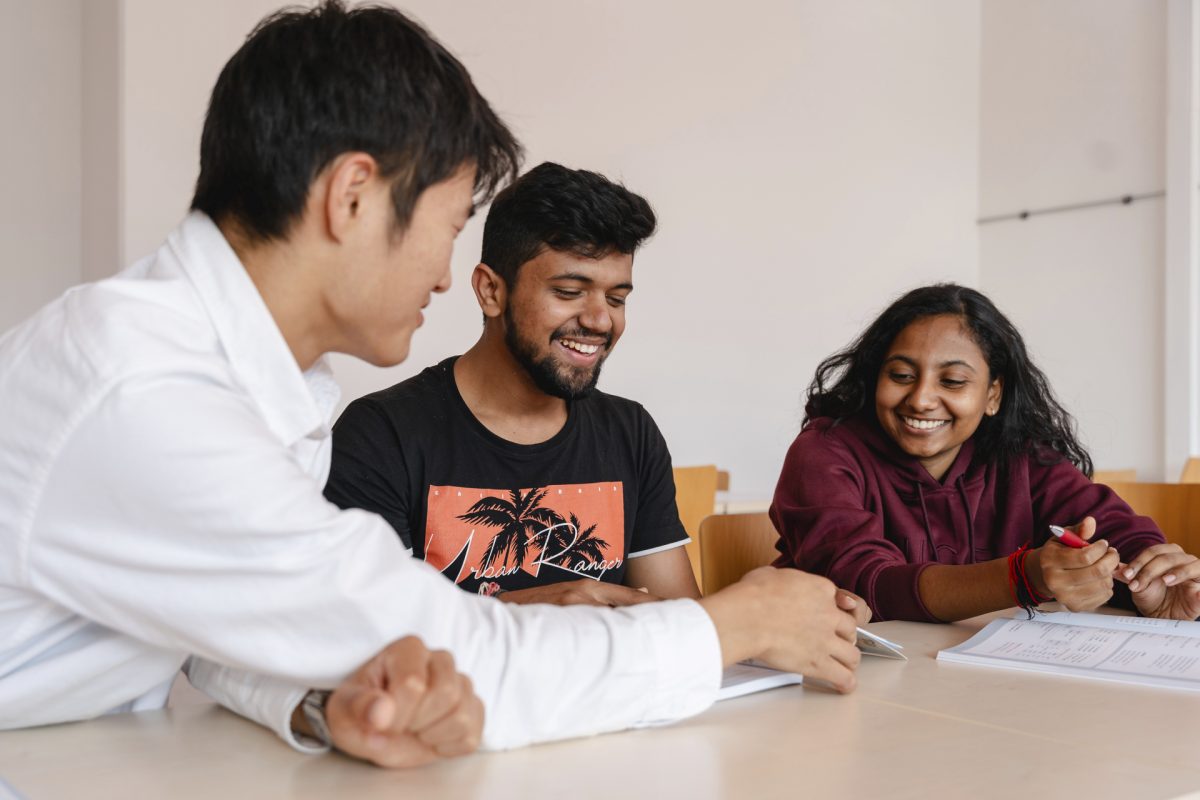“Understanding and speaking the German language is a key competence“ Ahmed Abdelhamid on the importance of German language learning programmes for international students
Since the beginning of this year, Ahmed Abdelhamid has been responsible for the German language semester courses at the Language Centre of the International House. In this interview, he shares his first impressions and explains why the German language is so important for international students to succeed in their studies and enter the labour market in Germany.
Mr Abdelhamid, you came to TU Braunschweig at the beginning of the year – how did you experience the first few weeks?
I am impressed! It’s great to see how many international students there are at TU Braunschweig, what a wide range of programmes we can offer them, and how closely the various departments here work together, both within the International House and across the university as a whole.

Ahmed Abdelhamid has been Head of German as a Foreign Language – Semester Courses since the beginning of the year and shares his ideas for the Language Centre in this interview. Photo: Simone Fürst/TU Braunschweig
What appealed to you about coming here?
I am experiencing a new challenge here, especially as head of the German semester programme. The range of courses on offer at the Language Centre is already very diverse, but I would like to expand it further – in particular beyond the traditional language courses. My aim is to use our courses to make an even greater contribution to helping our students successfully complete their studies and to support their academic and professional careers.
International students have to prove their comprehensive knowledge of German in order to be admitted to most degree programmes. Why is it important to continue learning German whilst studying?
There are several reasons for this. On one hand, language skills deteriorate if they are not actively practised. We recently noticed this in particular during the coronavirus pandemic, when contact between many international students and fellow German-speaking students was so limited that many of them had very limited opportunities to practice their German skills. On the other hand, language skills are important for living, studying and, of course, working in Germany. Students need very good German language skills in order to be an active part of the university, to be able to follow courses well, to make friends, and to find a job later on.
However, continuing to learn German alongside a full timetable can be a particular hurdle for many international students.
Understanding and speaking the German language is a key competence for one’s studies. Our task is to make students aware of this offer and its relevance. Even if you have already proven your knowledge of German and are not obliged to attend further German courses, you need these skills to be able to study successfully.
We need to make the German semester programme even more attractive. One way of doing that is by offering specialised language courses: Many international students have difficulties following lectures despite their certified knowledge of German. The educational system here is different to that in other countries, you have to prepare yourself and learn independently – all of which requires a high level of German. Writing term papers or final theses or giving presentations in German also presents particular linguistic challenges.
What role do extracurricular programmes play in learning German?
A major role. For us, it’s not just about the professional jargon, but about German-speaking and international students coming into contact with each other. The language tandem programme and our language café aim to do just that and help international students to speak German without fear of making mistakes. With the S.o.S. programme (editor’s note: S.o.S. stands for “Studying without language barriers”) and its international learning groups, we also offer additional support for course-related learning. S.o.S. in particular is a flagship project and it’s great to see how closely we work together here as the International House, especially with the Faculty of Electrical Engineering, Information Technology, Physics and the Faculty of Mechanical Engineering. I am thoroughly convinced that cooperation with the faculties is crucial in order to reach students with our programme.
You have already mentioned the importance of German language courses for entering the labour market. Can you elaborate on this?

The German courses at TU Braunschweig not only support international students in succeeding in their studies, they are also an important element in preparing them for entering the labour market. Photo: Simone Fürst/TU Braunschweig
If international graduates are unable to find a job in Germany despite having very good degrees, that often has to do with their German language skills. For example, if they want to work in a company that mainly employs German speakers, they need to be able to communicate with them in German. We have to adapt our programme to this and prepare students’ language skills for applications, job interviews, or communication in the working environment, for example.
What challenges do English-language or bilingual degree programmes entail?
We live in a globalised world and bilingual or English-language degree programmes are an excellent way of preparing our students for this. This applies both to German-speaking and international students. However, if we want to attract international graduates as skilled workers, this naturally means that we have to convince them to stay here after graduation. To do this, we need to prepare them for the German labour market in the best possible way. Structures such as the Computational Sciences in Engineering (CSE) degree programme with embedded German courses can be very useful here.
To conclude: What is your vision for the work in the area of the German semester programme?
Our range of courses is already very diverse, but we need to keep the ball rolling, expand it further and create new programmes – especially with a focus on professional life later on. In this context, we also want to make greater use of interactive and digital learning methods to make the learning process even more effective and engaging. These teaching approaches enable students to learn more flexibly and better manage their individual learning rhythm. I would also like to strengthen areas such as regional studies and phonetics. In addition, I would like to organise extracurricular events such as country or games evenings to help our German courses reach even more international students and get them talking to each other. We will do everything we can to provide students with the best possible support and are always open to suggestions for our programme.
Thank you very much for the interview!
Interview: Daniel Götjen / International House
